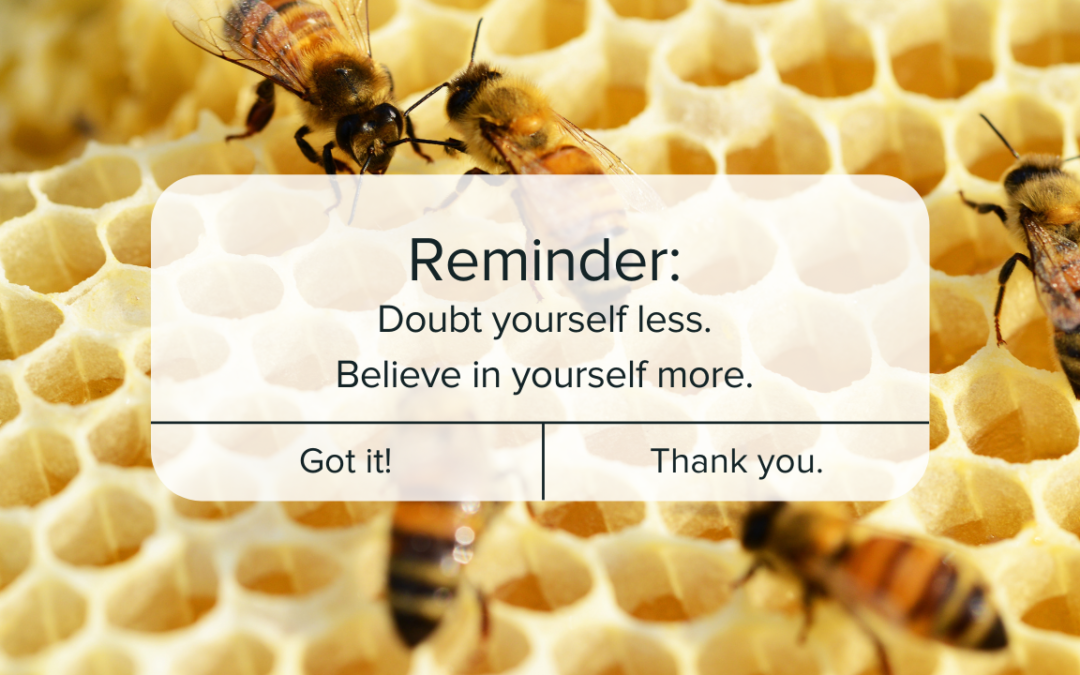Am I as good as they say? Did I deserve this award? Being a leader, it is sometimes easy to feel like your accomplishments are not yours. It can seem as if your hard work isn’t tangible or something you actually achieved. When you start to feel like this, you doubt yourself as a leader and question if every accomplishment was something you are worthy of. This feeling has a name, it’s called imposter syndrome. To me, this means doubting your abilities and ultimately feeling like a fraud in every capacity. And it can relate to school, relationships, work, or anything of importance to you where you have achieved. If you are someone who is high-achieving and struggles to accept your accomplishments, you could be experiencing imposter syndrome. This is extremely prevalent for women and is a byproduct of the systems in place and biases created that don’t result in equity for all.
The workplace and schooling have a serious impact on this because of who is represented in higher roles and who is award-winning. Most of the time those represented are male, so when it is a woman, it can be difficult to accept the accomplishment. More so, it can make you feel as if you have fooled the world into thinking you are better than you are. Many women that you look up to have likely dealt with the imposter phenomenon.
One of the most prominent women to publicly discuss this is Michelle Obama. In her memoir she states, “It doesn’t go away, that feeling that you shouldn’t take me seriously. What do I know? I share that with you because we all have doubts in our abilities, about our power and what that power is … Here is the secret. I have been at probably every powerful table that you can think of … they are not that smart.”
The term imposter syndrome is extremely heavy and has a medical undertone that can signify something is extremely wrong with you. In fact, it is quite the contrary and is something that should never be targeted solely towards women., It is unfortunately (and disproportionately) a topic at almost every women’s conference and is signaled with female hysteria.
So how can you get in front of imposter syndrome or deal with feelings of uncertainty and reflection in relation to success?
Remember a few things:
1. Confidence does NOT equal competence. You might notice a counterpart that is extremely confident in their abilities but in fact, does not have the answers you do.
2. Believe in yourself the way you believe in others. In the same way that you support the accomplishments of your friends and family, you should do the same for yourself.
3. The worst you can hear is no. When taking charge and trying to be heard and seen and change the world, you can doubt that anyone would want to listen. Don’t overthink, just do, and if one door closes open another!
4. You are NOT broken. There is nothing to be fixed in you. The bias around you needs to be fixed. There are toxic environments that women are constantly in that overwork and demean everything that women do. Recognize it’s not you, but your environment.
5. Self Doubt is NORMAL. Your own doubt will creep in, but it does not make you less than. Turn these feelings into motivation to make a change. This can be difficult but practice makes perfect.
I still experience this… it doesn’t disappear but you can grow from it and improve yourself. Being a recent college graduate and now entering grad school, I had a moment where I was amazed that I got into my top-choice school. Everyone around me consistently encouraged me and told me I was worthy, but quite frankly I couldn’t wrap my head around the potential. I truly believed there was no way I would get into my dream school. But I did, and I am beyond proud of myself. I have let myself feel and embrace this accomplishment finally.
I hope you allow yourself to feel every accolade and achievement you acquire.
Lastly, in the words of Denis Waitley, remember… “It’s not what you are that holds you back, it’s what you think you are not.”
This post was submitted by Taylor Outler (Chi).


